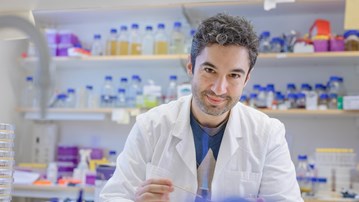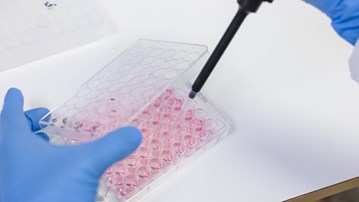Umeå University has a long tradition of research within the field of antimicrobial resistance including basic research that aims to understand the virulence mechanisms of microorganisms and the interaction between the host and microorganisms. More applied research is also conducted that seeks new solutions to combat the problem, for example through the development of new molecules that are effective against resistant bacteria, viruses, fungi and parasites.
Antimicrobial resistance is a global public health problem that is increasing at an alarming rate. Today, about 700,000 people worldwide die each year due to infections caused by antibiotic-resistant bacteria. If nothing is done, 10 million people are at risk of dying from infections caused by resistant microorganisms by 2050.
Today's healthcare is completely dependent on effective antimicrobial agents, for example in connection with cancer treatment, operations and transplants. If resistance development is not slowed down, previously harmless infections or simple surgical procedures risk a fatal outcome in the future.

Effective against serious infections, according to new study.

New study shows how an enzyme breaks down the bacteria's cell wall to transfer resistance to antibiotics.

Felipe Cava, Umeå University, is one of the researchers that have identified a bacterial enzyme.

Researchers at Umeå University have discovered how a certain type of protein moves for DNA to be copied.

A transporter which some bacteria use to recycle fragments of their cell wall has been discovered in Umeå,

Felipe Cava's group has discovered proteins needed to maintain the bacteria's cell wall structure.

The collaboration with the researcher started through the South Africa - Sweden University Forum, SASUF.

Public health student Erick Venant explains why World Antimicrobial Awareness Week is important to him.

Umeå researchers one step closer to a new weapon against multidrug-resistant bacteria.

Infection researchers show in Nature structure and mechanism of bacterium A. baumannii attaching pilis.

A clear link between taking antibiotics and increased risk of colon cancer has been found by researchers.

Fredrik Almqvist's research group assists with design and synthesis of new antibacterial substances.

Maria Fällman and Kemal Avican made their idea into a interdisciplinary project together with Icelab.

Intermediate of the peptidoglycan recycling pathway that can modulate synthesis and structure of cell wall.

Felipe Cava wants to learn more about the small and complex microbes.